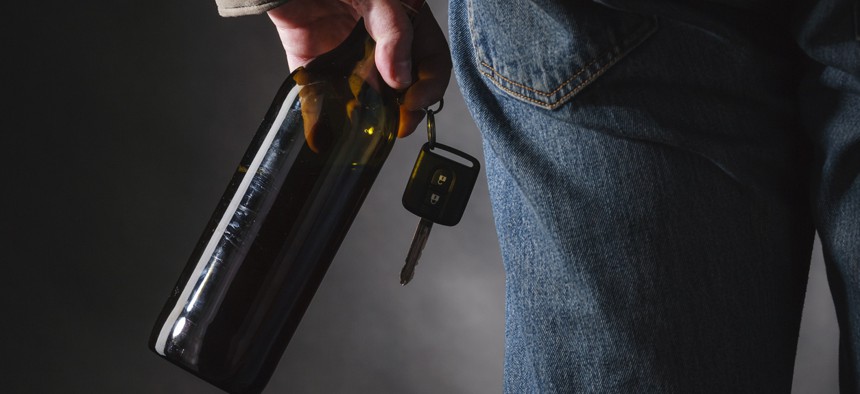Repeat Drunk Drivers in This State Can Now Face Life in Prison

istock.com/Ansaharju
Drunk drivers with previous impaired-driving convictions who kill or injure others will be subjected to increased sentencing guidelines, including the possibility of life in prison, under a new law in New Hampshire.
Drunk drivers in New Hampshire who kill or injure others will face longer prison sentences if they have prior convictions for driving under the influence under a bill signed into law this month by Gov. Chris Sununu.
Under the new law, drunk drivers who kill or inflict “serious bodily injury” on others will face a 10- to 20-year sentence if they have a prior conviction for impaired driving. Those with two or more prior convictions can be sent to prison for 15 years to life. The policy takes effect Jan. 1.
The legislation, named the Tyler Shaw Law, is the result of years of advocacy by Beth Shaw, a Concord woman whose 20-year-old son Tyler was killed by a drunk driver in April 2018. That driver—a then-36-year-old named Joseph Leonard—had two prior convictions for drunk driving when he ran a stop sign and hit Tyler’s truck at a speed of roughly 60 miles per hour. He was sentenced to six to 12 years in prison, Shaw told legislators at a committee hearing in March.
“I ask each of you to consider this question,” she said. “If your son, daughter, spouse or parent were senselessly, brutally murdered by a person whose driving record is littered with drunk-driving convictions, would you feel that six years in prison is an adequate penalty for the death of your loved one?”
State Rep. Daryl Abbas, a Republican from Salem and the bill’s lead sponsor, said he encountered the legislation almost by accident after noticing it had been filed last year but tabled due to the coronavirus pandemic. He told the committee in March that he’d recalled Shaw’s previous testimony and felt the legislature could prevent similar incidents by beefing up penalties for impaired driving.
“Someone who’s committed that offense and has already been convicted of it, and then commits it again, resulting in a homicide, is a terrible tragedy that could be avoided,” he said at the hearing. “It really did show a gap in the law.”
Katherine Cooper, executive director of the New Hampshire Association of Criminal Defense Lawyers, was the only person to testify against the bill, telling lawmakers that the increased penalties would create a “major escalation” for first offenders at a time when drunk driving is on the decline.
“There is no way to make these systems perfect,” she said. “I know that is no consolation, but it is, unfortunately, the reality.”
Alcohol-impaired drivers involved in fatal crashes are “four times more likely to have DWI convictions than drivers who had not consumed alcohol, according to 2019 data from the National Highway Traffic Safety Administration. Multiple states have passed laws that subject repeat impaired-driving offenders with increasingly harsh penalties, according to data from the National Conference of State Legislatures.
At the bill’s signing ceremony, Sununu praised Shaw’s activism, telling a local news station that the legislation likely would not have advanced without her testimony.
They provided the testimony, they talked to the legislators, they’ve advocated the right way to get the bill done today,” he said. “I can’t imagine the strength that that takes, but without it, I don’t know if we’d be here today.”
Kate Elizabeth Queram is a senior reporter for Route Fifty and is based in Washington, D.C.
NEXT STORY: Federal Eviction Ban Could be Headed Back to Supreme Court





